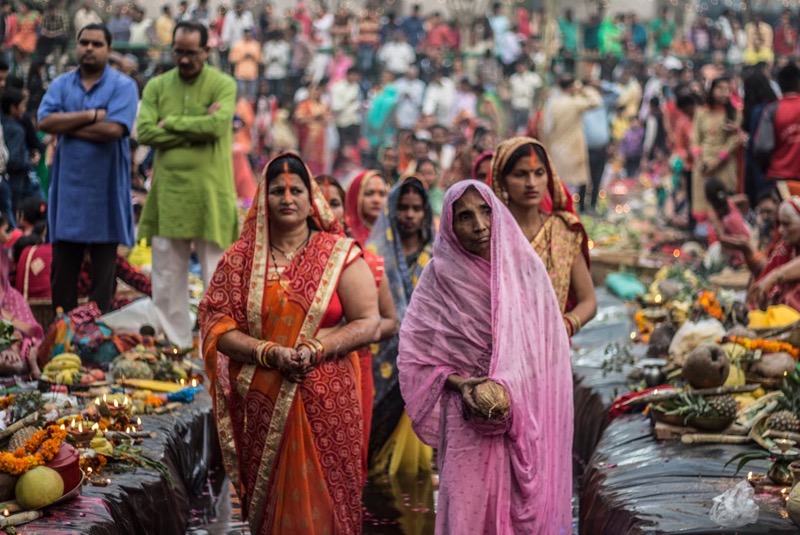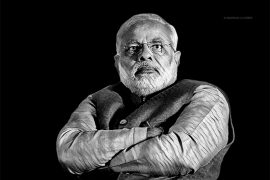As a thirteen-year-old Indian girl, I feel I’m not too young to be blind to what’s happening around me, but I am still young enough for elders to disregard my opinions. However, I see things quite clearly, probably more clearly than elders who believe they know everything.
Women in India suffer day after day, and no one seems to be concerned enough to enact drastic change. We watch news reports and read opinion editorials about the violence inflicted on women, but what happens when the cameras are off? Nothing. The next day, yet another girl gets raped, and her dreams are snatched away because society has decided to devalue her worth and place her in a secondary role.
Girls are indoctrinated of their worth very early on in childhood. A girl is considered to be a “debt” or “burden” to everyone the moment she is born. Parents, family members and even teachers instruct girls to be obedient and ask them not to cause trouble.
Girls in India are not allowed to coexist as equals. According to the National Family Health Survey, only 919 girls are born for every 1,000 boys. “India is the only large country in the world where more girl babies die than boy babies,” according to a UNICEF report. The “under-five mortality rate for girls in India is 11 per cent higher for girls whereas globally, the under-five mortality rate is 9 per cent higher for boys, reflecting a 20 per cent abnormality in the under-five mortality rate for girls.” Many families say boys are “better” because they can earn money and carry the family name along. But that makes me sick. What about us? Why is it acceptable to love your son more than your daughter?
Girls’ education is a casualty of tradition. Unfortunately, most girls don’t even get the opportunity to dream. When they reach 12 or 13, most are taken out of school to help at home. Shockingly, 55 per cent of girls drop out of school before and during secondary schooling, reports UNICEF. Why? Because their education is not important compared with all those other vital things such as cooking, cleaning, and getting married to whoever is chosen for them by their family.
I know of girls who wanted to become doctors, engineers, or artists but were forced to give it up because their families thought it was more important to get married. A friend from Rajasthan, for instance, got married when she was just 15 last year. Earlier, she talked about how she would become a scientist. However, now, she talks only of her husband’s family and the many chores she has to do daily. I see this and end up feeling utterly helpless.
Marriage is the end of freedom. At times, it is akin to a prison sentence. Twenty-seven per cent of Indian girls are married even before they turn eighteen, according to a report by the Ministry of Women and Child Development. How can this be alright?
Girls like my friends are being snatched away from their futures. I know it sounds dramatic, but that is just true. How would boys feel if, at 16 or 17 years old, they were told that they were done with school education and belonged to someone else?
Dowry deaths—yes, people still die because of dowry in 2024—are just the most extreme example of how marriage can kill dreams. According to the National Crime Records Bureau, in 2019, there were more than 30,000 dowry-related deaths. That happened even though it’s unlawful to demand dowry. But how can laws be effective when society forces women into dangerous, humiliating traditions?
Sadly, there are double standards when it comes to women. Women are worshipped and raped. There is nothing worse than the hypocrisy of how girls and women are treated during religious festivals compared to their treatment on any other day in the year.
During Durga Puja or Navaratri, girls and women are worshipped like goddesses. Ostensibly, they represent female power and purity. However, as soon as the festival is over, the same society reverts to abusing women and treating them as if they are nonexistent.
According to the National Crime Records Bureau data, in 2021, India has recorded more than 30,000 rape cases in a year. However, a majority of the cases are not reported because family cares more about their “reputation” than taking action against abusers. The culture of victim-blaming is so strong that many girls are afraid to speak up. How can a country claim to honour women when brutal rapes and murders—like the one at RG-Kar Medical College in Kolkata or other “non-popular rape cases”—are a daily occurrence?
When a rape case catches national headlines, people pay lip service and ask for justice. However, as soon as the news cycle moves on, they soon forget, and the cycle of violence continues to thrive. It is scary to grow up knowing that your safety is not guaranteed and that your dignity matters so little to those wielding the power. Why Isn’t Anything Changing?
People adore talking about change, yet nothing changes. Politicians make tall promises. Yet all promises at polls dissipate when “corrupt leaders” get elected. The government enacts schemes for “women empowerment,” but most of them are token gestures that do not try to get to the root of societal norms that oppress women every day.
The system is more interested in protecting criminals rather than the victim. The courts would take years to deliver justice, and the victim would be forgotten by then. Why else would the government let out rapists like Gurmeet Ram Rahim Singh?
I see parents teaching their daughters what to wear or how to behave so that nothing terrible happens to them. Such thinking suggests that, instead of educating boys not to act violently, girls must protect themselves against their violence.
Will things ever improve? As much as I want to believe they will, it’s hard to be hopeful. The authorities must move from soft-sounding words to actions and from gestures to practical, implementable measures to cure societal ills.
Legislation without execution or implementation undermines the very fabric of justice. For example, many countries may have enacted progressive gender equality laws; however, these laws often remain unimplemented. Such a failure compounds the gap between protections by law and enforcement.
For instance, in India, the skewed birth ratio certainly mirrors a preference for male children. The programs initiated by the government, such as “Beti Bachao, Beti Padhao,” have increased awareness, but the bias remains deep. Despite these programs, prejudice against the girl child gets perpetuated even today because the perception that a girl child is inferior continues to prevail.
Enhanced legal enforcement is essential to safeguard the rights of girls, and this initiative should be complemented by nationwide campaigns aimed at dismantling detrimental stereotypes and promoting gender parity.
However, it is not the sole responsibility of the government. The entire society must advance. Boys and men need to be educated early to respect women. Early intervention has proved itself to be effective. A UNESCO research study found that preschool education plays a highly influential role in shaping attitudes toward gender equity, and thus, teaching boys respect for women from an early age is necessary.
School classrooms should include compulsory classes on consent, gender, equality, and respect. Education is critical to eradicating the patriarchal framework that makes women lose their dignity—according to a global survey conducted by “Plan International”, 67% of women reported that they had experienced some form of harassment or discrimination. This statistic highlights the pressing need for educational reforms emphasisingrespect, consent, and gender equality.
Furthermore, girls and women must be empowered to continue working towards their rights, combat injustice, and realise their worth. In many cultures, girls are socialised to accept inequality as normal and often remain ignorant of their potential. Programs that arm young girls with leadership qualities and confidence are crucial in changing this paradigm.
Rwanda is a notable example of how women’s leadership programs can bring lasting change. According to the Inter-Parliamentary Union, 61.25 per cent of its parliamentary seats are held by women—the highest in the world. Rwanda has risen to global leadership in championing women’s empowerment. Their efforts have shown that encouraging and empowering girls and women can change societies.
Empowerment will prove crucial to a culture where girls feel safe and are inspired to stand against injustice. The aim is straightforward: create a world where the ideal can become a feasible reality by building equality between sexes through education, stronger legal enforceability, and change in societal perceptions.
The reality is apparent—girls deserve far better, and meaningful change will only come when we collectively decide that the status quo is unacceptable. It’s time to rewrite the narrative and demand a future where every girl’s potential is recognised and respected.
-30-
Copyright©Madras Courier, All Rights Reserved. You may share using our article tools. Please don't cut articles from madrascourier.com and redistribute by email, post to the web, mobile phone or social media.Please send in your feed back and comments to [email protected]











